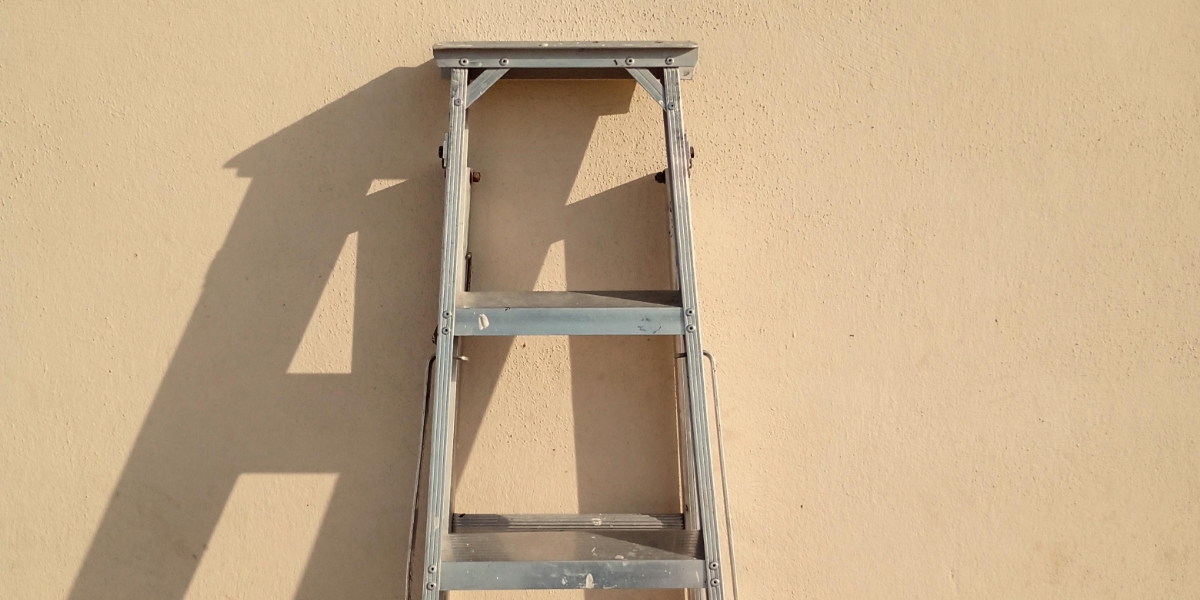Interested in buying your first house? The Home Buyers’ Plan (HBP) lets you use your RRSP, tax-free, to do so. But how does it work and what are the conditions? Find out what it's all about below.
Move or renovate: How do you decide?
If your house is cramping your style, you have options to consider before you decide whether to move out or change it up.

Is your home feeling too small? Or just not quite right? Are you tempted to buy (or take a loan) because of current interest rates? Maybe your family grew, or you just want a different floor plan. Whatever the case – you might be considering a change. But what’s the best option for you: renovating or moving?
Several factors affect whether renovating or buying a new house is the best financial and emotional decision for you and your family.
Three years ago, I was faced with this choice with my family. Our house had a great kitchen and decent layout. And we loved our neighbourhood. But our family grew since we bought the place. We needed another bathroom and wanted better outdoor space for our growing family. Plus, we had other ideas for upgrades like built-ins, hardwood floors, new doors, and modern lighting.
Armed with our list, we met with contractors to discuss renovating our house and got some quotes. At the same time, we went house hunting. We wanted to see if we could find a new house for around the same amount of money as renovating. Why bother renovating if we could find a house for sale that already met our requirements and budget?
In the end, we found that buying a bigger house would cost much more than renovating. Especially when we factored in fees payable before we even took possession. In a major Canadian city, you could pay $50,000 or more for real estate fees and moving costs. We figured, that’s money we could spend renovating our existing home. Also, it’s rare to find a perfect house that doesn’t need some work.
What are the pros and cons of renovating?
Sometimes renovations displace you
Major renovations can require homeowners to move into temporary living arrangements for months. (We were lucky and lived with my in-laws). Depending on the extent of your reno, some builders will let you live on-site. For example, you could move to the basement while construction takes place on the main floor. Sure, this can save you money. But you’ll have to live in a mess for weeks or months.
Costs and time can add up unexpectedly
When you renovate, it’s a good idea to budget an extra 25% for contingencies. During the project, people often decide to upgrade to higher-end finishes. And sometimes, things beyond the homeowner’s or contractor’s control just happen. You see these scenarios on home-improvement TV shows all the time.
With renovations, you don’t know what’s beyond a wall until you take it down. Contractors may discover a problem. In our case, we needed to replace old wiring for our safety. This unexpectedly added to our budget. Some people may simply increase their budget accordingly but for some, it may mean giving up some plans.
These issues are why you may choose to move instead of renovating. Handling big projects and dealing with contractors and architects can be intimidating. And in many cases, renovations involve the hassle of two moves. One to move out while renovations are going on. And another to move back in when they’re complete.
You can get what you want – and know the quality of workmanship
The biggest pro to renovating, versus moving, is that you get to choose what you want! (This is really the fun part). Depending on your budget, you may be looking at a clean slate. You can decide how you want the house to function and look. You can also rest assured that you know, first-hand, what your money is paying for. When my husband and I were looking at new houses, we worried that renovated houses were priced too high. And we didn’t want to pay inflated prices for possibly low-quality finishes. We felt better knowing that we trusted our contractor and that our choices were worth the money we paid.
How has the pandemic affected home renovations?
Many discovered, after months (and years) of staying at home during the pandemic, that having a comfortable home is a priority. In fact, Harvard University found that 2020 was a record-breaking year for home improvements in the US.
However, while many Canadians want to improve their homes, trade labor shortage caused renovations to take longer – or were impossible – to complete. Not to mention a shortage of materials, created by the pandemic, caused supply prices to skyrocket. Since Canada imports a lot of its goods from other countries and factory work slowed during the peak of the Covid-19 pandemic. This meant regular scheduling of material transportation became delayed.
So, if you decide to renovate (our you’re on the fence), consider how shortages may play a role. Ask your contractor about their experience and challenges they’re facing because of shortages. And do some research about availability of the materials you may need. For example, we waited 7 months for a new fridge to arrive during the pandemic.
What are the pros and cons of moving?
You can build equity
Selling your house and buying a new one can be a great way to upgrade. That’s if you’ve got equity on your side. If your home is now worth more than what you owe, it may be a good time to sell. You’ll want to have enough equity to:
- pay off your mortgage,
- cover your closing costs,
- pay moving expenses, and
- put down a new down payment.
Or maybe your current house is no longer affordable. In this case, downsizing can help.
You can save time – and get a fresh start
If you’re in a time crunch, moving can also make more sense, since renovations are rarely completed on schedule. Plus, compared with renovating, if you buy a new and renovated house, it’s just one move – from your old place to the new. Moving can be a great way to have a fresh start. You can set down roots, decorate and make your new home work for you.
Moving costs can be high
While selling your home helps build equity, it isn’t free. In addition to your purchase price, there are costs to budget like:
- movers,
- a home inspection,
- land transfer tax,
- real estate fees,
- mortgage protection and home insurance, and
- home repairs.
House hunting can be frustrating
Just because you want to move doesn’t mean it’s going to be easy. It can be frustrating (and time-consuming) to find a house that fits your budget and needs. Putting an offer on a house, or multiple houses, and losing out can be an emotional roller-coaster.
3 things to consider before moving or renovating
1. Is it cheaper to renovate or move?
Cost is a major factor in home improvement decisions. Whether or not it’s cheaper to renovate or sell depends on:
- your current mortgage situation, and
- how much money you have in savings.
Renovations mean immediate, out-of-pocket expenses. Compared to moving, which can cost you more later. Another consideration is the effects of inflation or stagflation and the increasing costs of materials and services.
If you need ideas, we have 10 ways you can beat inflation.
2. Is now the right time to sell (and buy)?
Even if it is cheaper for you to move, will you get the most out of your investment? Talk with a realtor, and research market conditions before putting your house on the market. Working with a trusted advisor can also help you understand what you can afford – now and in the future.
3. Are you prepared to deal with extra work?
Moving isn’t always an option for everyone. Think about how moving might mean changing schools and add mortgage costs. Also consider if you or your family can handle the stress and inconvenience of living through renovations. Or worse, living elsewhere until your contractor finishes the work.
9 smart steps if you're moving and/or renovating
- Get pre-approved for a mortgage.
- Start house-hunting six months before you want to move.
- Figure out your moving, real estate, legal and land transfer costs.
- Factor in additional costs for possible home repairs or renovations.
- Get quotations and references from several contractors.
- Ask contractors if they will allow you to live on-site during construction.
- If you must move out, factor relocation costs into your budget.
- Add a contingency fund of at least 25% to any renovation budget.
- Plan for delays.
Do you need help saving for a new house or renovations?
An advisor can help you sort through all your options. Then, figure out what’s right for you and your loved ones. Find a Sun Life advisor today.
Read more:
This article is meant to provide general information only. Sun Life Assurance Company of Canada does not provide legal, accounting, taxation, or other professional advice. Please seek advice from a qualified professional, including a thorough examination of your specific legal, accounting and tax situation.


